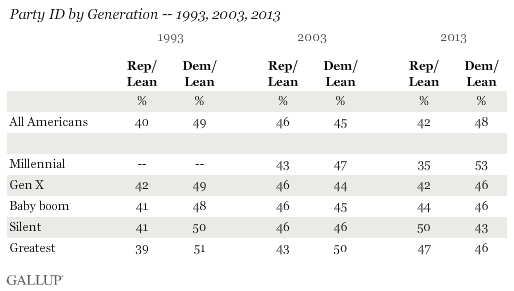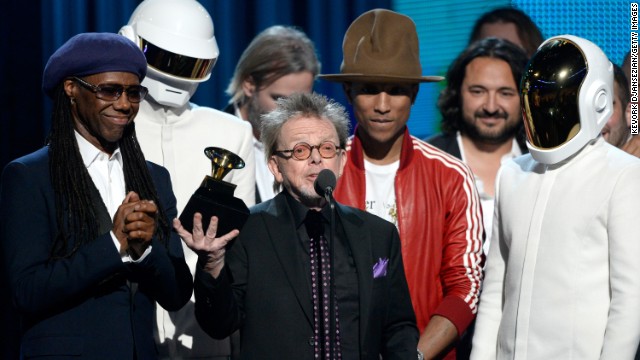Atrios does a great job here of rehashing how most political media types view
the last 30 years:
The story the Dem party likes to tell itself is that it went all crazy hippie dippie in the 70s and 80s, elected that communist Jimmy "deregulation" Carter to the presidency, then nominated noted communists Walter Mondale and Michael Dukakis who were deservedly destroyed. During this period, a time when half of the party were conservative southern racists, the party didn't do enough for the Real American white working (male) class. Then along came the DLC and the new Democrats and the new new Democrats and the new new new new new new new Democrats and they moderated the party by informing big business that we were their friends too and we'd love their money. Then the party enhanced its appeal by backing off on support for gun control and abortion rights.
By doing all of this the party ushered in the great Glorious Age of Democrats, otherwise known as the election of Bill Clinton, which was followed by a Republican takeover of the House, their frequent control of the Senate, the destruction of the welfare system, the election of George W. Bush, some lovely little wars, and out of control banksters that destroyed the economy and got rich doing it. Yay great moderation.
Obviously that isn't quite the story they like to tell themselves, but hopefully you get the point. Anyway the real point is that while the narrative is always about how the Dems turned their backs on the white working class, during the grand "rescue the party from the hippies" period, it isn't as if they suddenly did a bunch of stuff to help these people. They mostly just tried to convince them that they love guns and war and don't much like those abortion sluts either. Also, too, don't worry white working class, we aren't going to do anything to help you but we aren't going to help the blah people either.
This is absurd of course. The TL;DR version of this history is that corporate power has grown wildly during this time period and Bill Clinton made a conscious effort to move the Democratic party to the right on economic issues because he wanted them to also get a share of Wall Street's money for his side as well.
Defenders of this will say that it was needed to stay competitive electorally, but we're living with the result now: Two corporately owned political parties who differ mostly on social issues and whether or not we should try to help those in need a little or not at all. It's worth remembering we didn't get to this point because the Democratic party was ever "too liberal".


